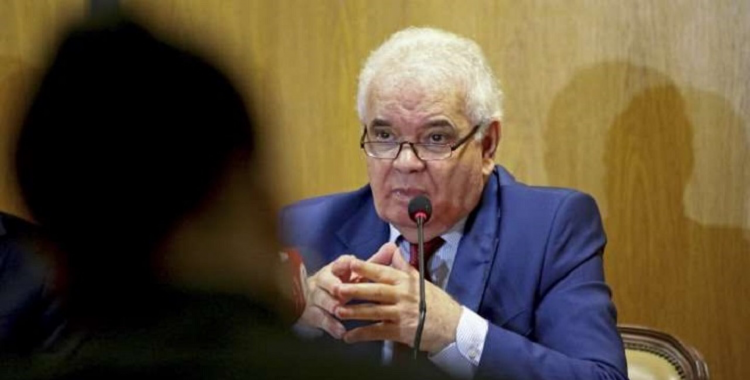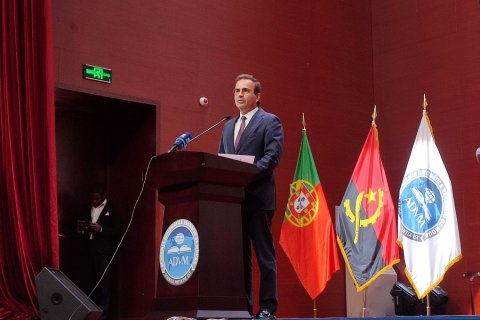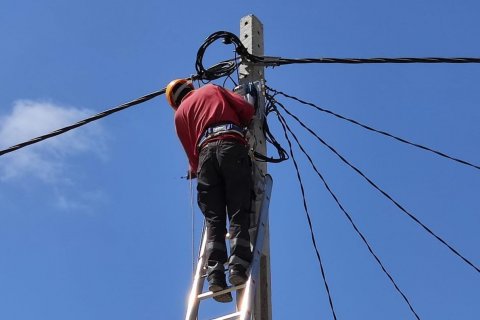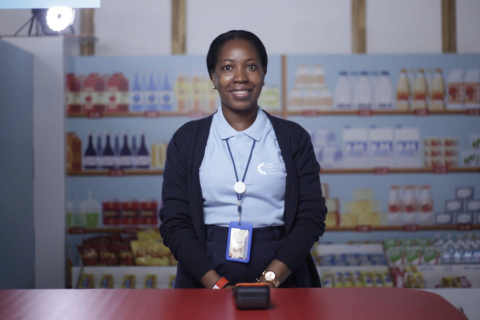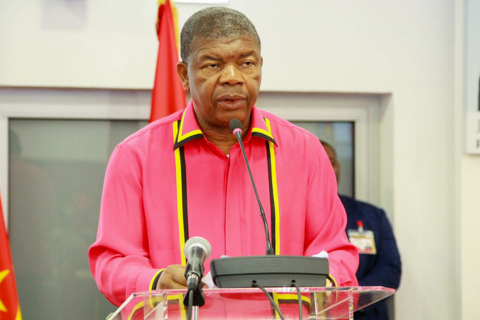"The country is in an electoral period and, naturally, the Government or the MPLA [Popular Movement for the Liberation of Angola], which maintains political power and decision-making power in economic policy, has every interest in giving some signs that the population can interpret as positive signs for their income", he said this Monday in statements to Lusa.
For the economist, the "reduction in the intensity of the increase in the prices of basic goods, from the electoral point of view, may mean some opening or acceptance on the part of voters".
Now "the question is to know, after the elections [of August 24th], what can happen, because once the electoral period has passed and in a context of economic crisis and international political crisis, where the creation of of a new world order, it is good that we are aware of that", he noted.
"It is not known how long this war [in Ukraine] will last, and this will trigger serious problems on the world economy and Angola cannot be satisfied with the fact that the price of oil is at the levels it is", he stressed. .
"There are many measures that are taken on purpose during electoral periods, and this is not specific to Angola, it is basically the game of democracy", he stressed.
"Whoever has power intends to preserve it and whoever does not have it intends to conquer it, but we will see, a more consistent analysis of this trajectory of price behavior in Angola we can only have from the end of the elections or until the end of the year" , he argued.
He pointed out, at the same time, the reduction of customs tariffs on products of the basic food basket and the increase in domestic production of agricultural goods as factors that justify the current drop in inflation in the country.
For the economist, the inflation rate of 24.42 percent recorded in May 2022, "is still very high, because prices continue to rise", but, he stressed, "there are apparently some reasons" for the reduction of inflationary dynamics. in Angola.
"One of the reasons has to do, I think, with the reduction of customs tariffs on all products that are part of the basic basket and that is a very strong reason, that is, in this way the Government is trying to reduce the impact of what what is called imported inflation", he said.
He also mentioned the increase in domestic production of basic food items, namely through business groups that work and produce in the agri-food sector as another reason for the downward path in prices.
"It could be that these two main reasons are why the pace of price increases in Angola is more controlled or even decreasing", admitted Alves da Rocha.
The economist considered that sustainability for controlling inflation is a factor to be taken into account, noting that the “18 percent inflation rate, estimated by the National Bank of Angola (BNA) for 2022, is a possibility surrounded by many uncertainties. ".
"And in this matter of uncertainties, the world economic situation with Russia's invasion of Ukraine, namely in the field of fertilizers and cereals, enters," he stressed.
Inflation in Angola stood at 24.42 percent in May 2022, reaching the lowest level since January 2021, according to data from the National Consumer Price Index (IPCN) for May 2022, released last week by the Instituto Statistics (INE).
"The year-on-year change stands at 24.42 percent, registering a decrease of 0.52 percentage points compared to that observed in the same period of 2021. Comparing the current year-on-year change with that recorded in the previous month, there is a deceleration of 1.37 percentage points", reads the INE document.
The "food and alcoholic beverages" class contributed the most to the increase in the general level of prices with 0.47 percentage points during the month of May, followed by the "miscellaneous goods and services" classes with 0.10 percentage points, " clothing and footwear" and "furniture, household equipment and maintenance" with 0.07 percentage points each and "health" with 0.05 percentage points.
Alves da Rocha recalls that inflation in the United States of America and Europe is already a problem, "which the economic policy of the different governments will try to solve", and that Angola is not a closed economy and must also bear the negative effects of world crisis.
Angola "is not, for the time being, a self-sufficient country in any product, even the Strategic Food Reserve [REA] or the basic food basket, we are not a self-sufficient country or close to self-sufficiency".
"So this means that, going back to the issue of sustainability and reducing the intensity of prices, at some point we will also bear the negative effects of this international crisis", he noted.
"Unless internally we somehow manage to intensify even more the national production of these essential products of the basic food basket and the REA, adding to this substantial increase an annulment of the customs tariffs that impinge on these imported products", he stressed.
The sustained increase in domestic production of basic basket goods, in the opinion of the Angolan economist, "is still a sensitive issue", insofar as, he stressed, Angola "is a country highly dependent on imports".
"And even if they manage to significantly increase the production of some goods, we cannot forget that many of these basic basket goods have a very strong imported component," he said.
"This imported inflation will continue to exist and, naturally, Angolan businessmen will have to pass on the value of this imported inflation to raw materials, to intermediate goods, which we use to have the final product, they will have to pass on to the product end," he pointed out.
The director of the Center for Studies and Scientific Research at the Catholic University of Angola reiterated that the "decrease in the intensity of the increase in the prices of basic goods is a positive sign", regretting, however, the current environment for entrepreneurs who guarantee sustainability of production.
The environment that these entrepreneurs, "who invest what is theirs and do not depend on the Government", have to guarantee the sustainability of production "is not completely and totally positive, everyone knows that".
"There are issues that greatly increase business costs, there are issues related to bureaucracy, which in Angola is a terrible thing and which makes production costs very expensive", criticized Alves da Rocha.

